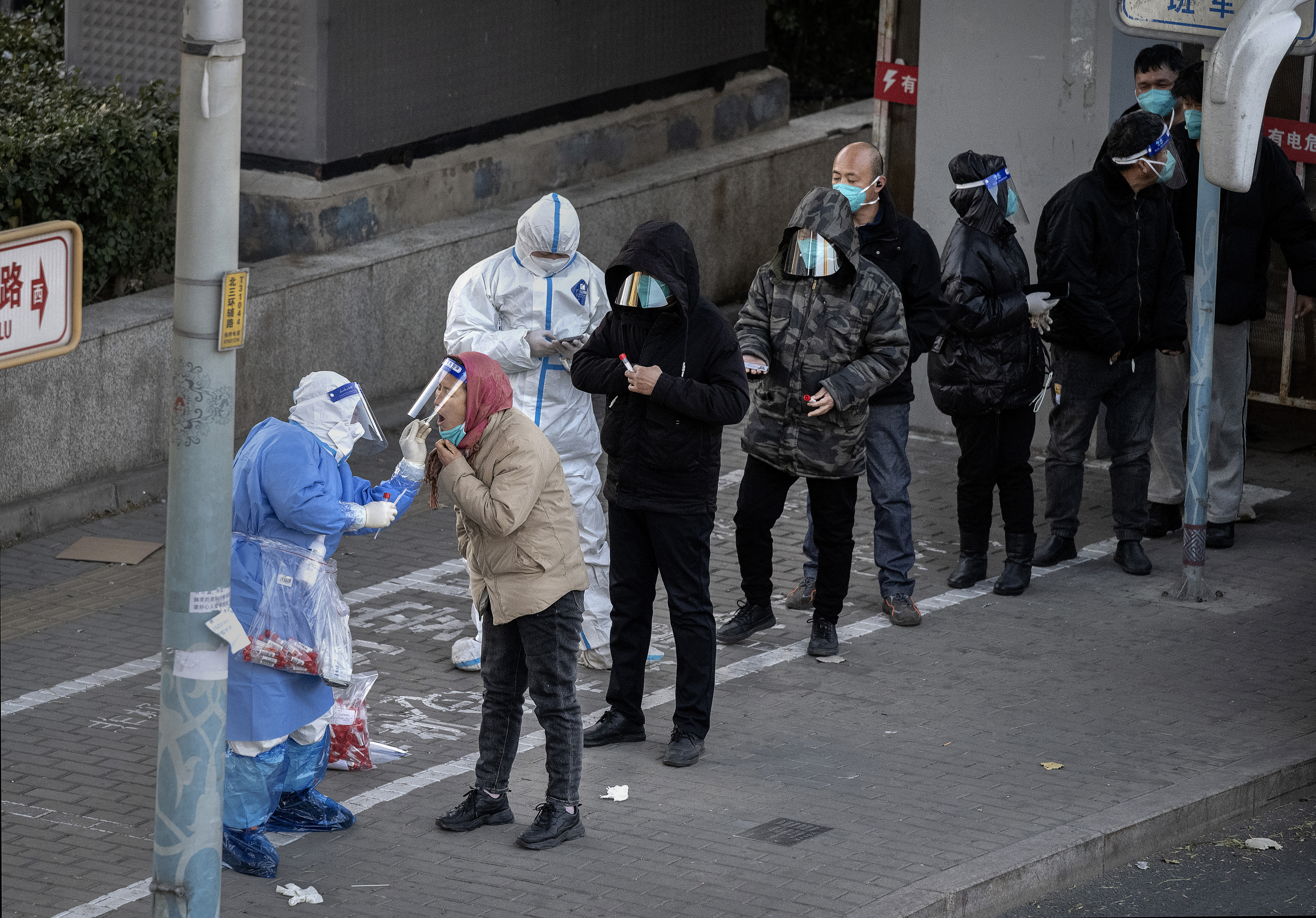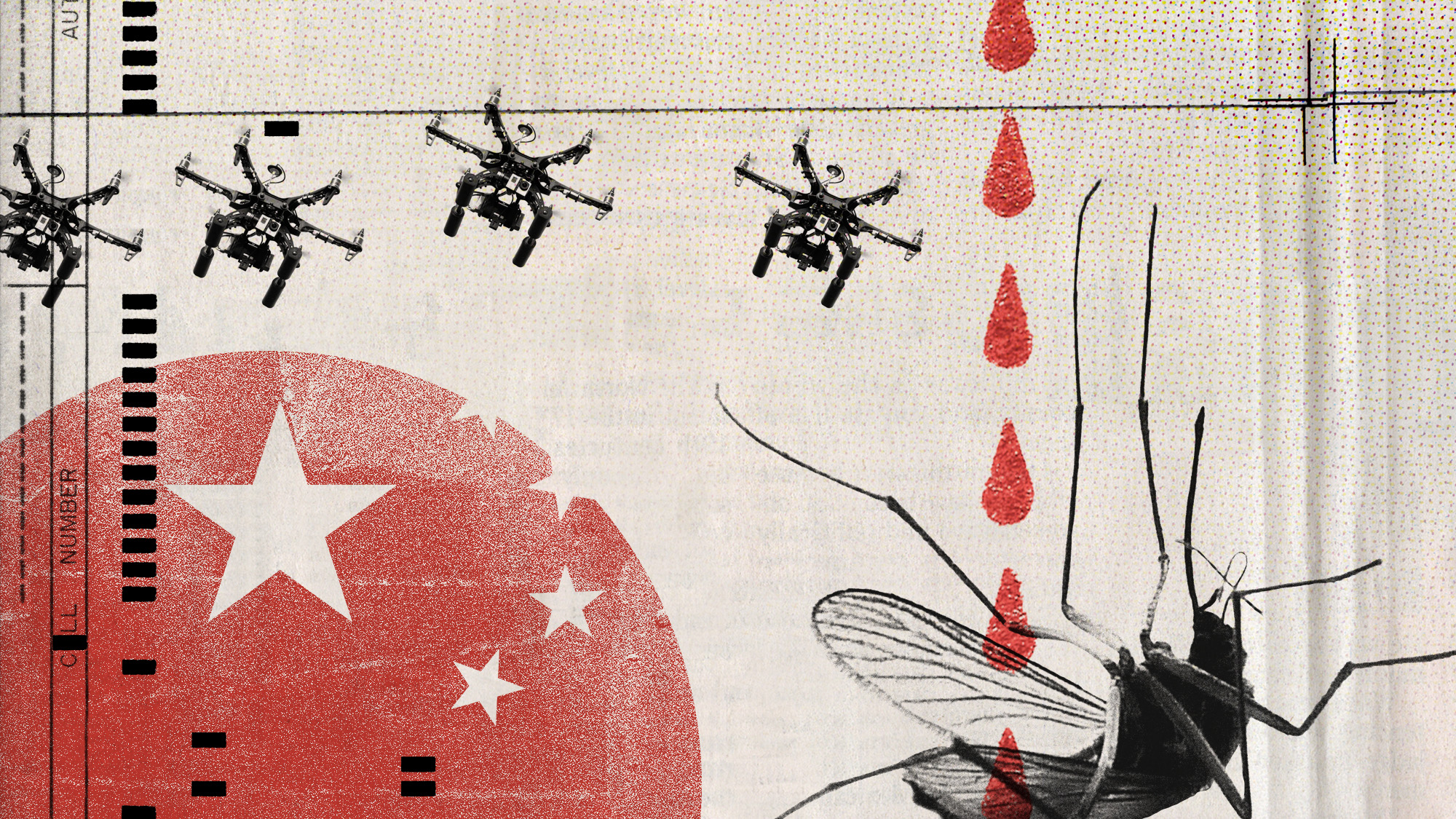2 Chinese cities ease COVID-19 restrictions as protesters pledge to continue


A free daily email with the biggest news stories of the day – and the best features from TheWeek.com
You are now subscribed
Your newsletter sign-up was successful
As protests in China over strict COVID-19 lockdowns rage on, a pair of cities announced on Wednesday that they would be easing up on some of the restrictions, Reuters reported.
The southwestern city of Chongqing will begin letting close contacts of COVID-positive patients quarantine at home under strict conditions, officials announced. Guangzhou, near Hong Kong, announced similar rollbacks of restrictions in certain districts, including the lifting of lockdowns and an end to mandatory PCR testing, per The Guardian. The cities are both major metropolises, and have an estimated combined population of nearly 50 million.
The decisions by the two cities come as protests over China's "zero COVID" policy reached a boiling point this week. Anger over the country's strict mandates, as well as a deadly apartment fire critics say was exacerbated by the lockdown, caused protesters to spill into the streets in cities around China, including the capital Beijing. In an unprecedented show of dissidence, many were reportedly heard calling for Chinese President Xi Jinping to step down.
The Week
Escape your echo chamber. Get the facts behind the news, plus analysis from multiple perspectives.

Sign up for The Week's Free Newsletters
From our morning news briefing to a weekly Good News Newsletter, get the best of The Week delivered directly to your inbox.
From our morning news briefing to a weekly Good News Newsletter, get the best of The Week delivered directly to your inbox.
However, even with this curbing of mandates, China continues to see record-high COVID cases, and Xi has continually asserted that his "zero COVID" policy is a successful tool in combating the virus. As a result, the policy is unlikely to see a significant change any time soon.
Despite this, some protesters told Reuters they were still going to rally for change. The recent death of former President Jiang Zemin, a popular leader who oversaw a period of mass economic growth, may also further push citizens to march.
A free daily email with the biggest news stories of the day – and the best features from TheWeek.com
Justin Klawans has worked as a staff writer at The Week since 2022. He began his career covering local news before joining Newsweek as a breaking news reporter, where he wrote about politics, national and global affairs, business, crime, sports, film, television and other news. Justin has also freelanced for outlets including Collider and United Press International.
-
 How the FCC’s ‘equal time’ rule works
How the FCC’s ‘equal time’ rule worksIn the Spotlight The law is at the heart of the Colbert-CBS conflict
-
 What is the endgame in the DHS shutdown?
What is the endgame in the DHS shutdown?Today’s Big Question Democrats want to rein in ICE’s immigration crackdown
-
 ‘Poor time management isn’t just an inconvenience’
‘Poor time management isn’t just an inconvenience’Instant Opinion Opinion, comment and editorials of the day
-
 A Nipah virus outbreak in India has brought back Covid-era surveillance
A Nipah virus outbreak in India has brought back Covid-era surveillanceUnder the radar The disease can spread through animals and humans
-
 Trump HHS slashes advised child vaccinations
Trump HHS slashes advised child vaccinationsSpeed Read In a widely condemned move, the CDC will now recommend that children get vaccinated against 11 communicable diseases, not 17
-
 Covid-19 mRNA vaccines could help fight cancer
Covid-19 mRNA vaccines could help fight cancerUnder the radar They boost the immune system
-
 FDA OKs generic abortion pill, riling the right
FDA OKs generic abortion pill, riling the rightSpeed Read The drug in question is a generic version of mifepristone, used to carry out two-thirds of US abortions
-
 The new Stratus Covid strain – and why it’s on the rise
The new Stratus Covid strain – and why it’s on the riseThe Explainer ‘No evidence’ new variant is more dangerous or that vaccines won’t work against it, say UK health experts
-
 RFK Jr. vaccine panel advises restricting MMRV shot
RFK Jr. vaccine panel advises restricting MMRV shotSpeed Read The committee voted to restrict access to a childhood vaccine against chickenpox
-
 Texas declares end to measles outbreak
Texas declares end to measles outbreakSpeed Read The vaccine-preventable disease is still spreading in neighboring states, Mexico and Canada
-
 How China is battling the chikungunya virus
How China is battling the chikungunya virusUnder The Radar Thousands of cases of the debilitating disease have been found in the country
